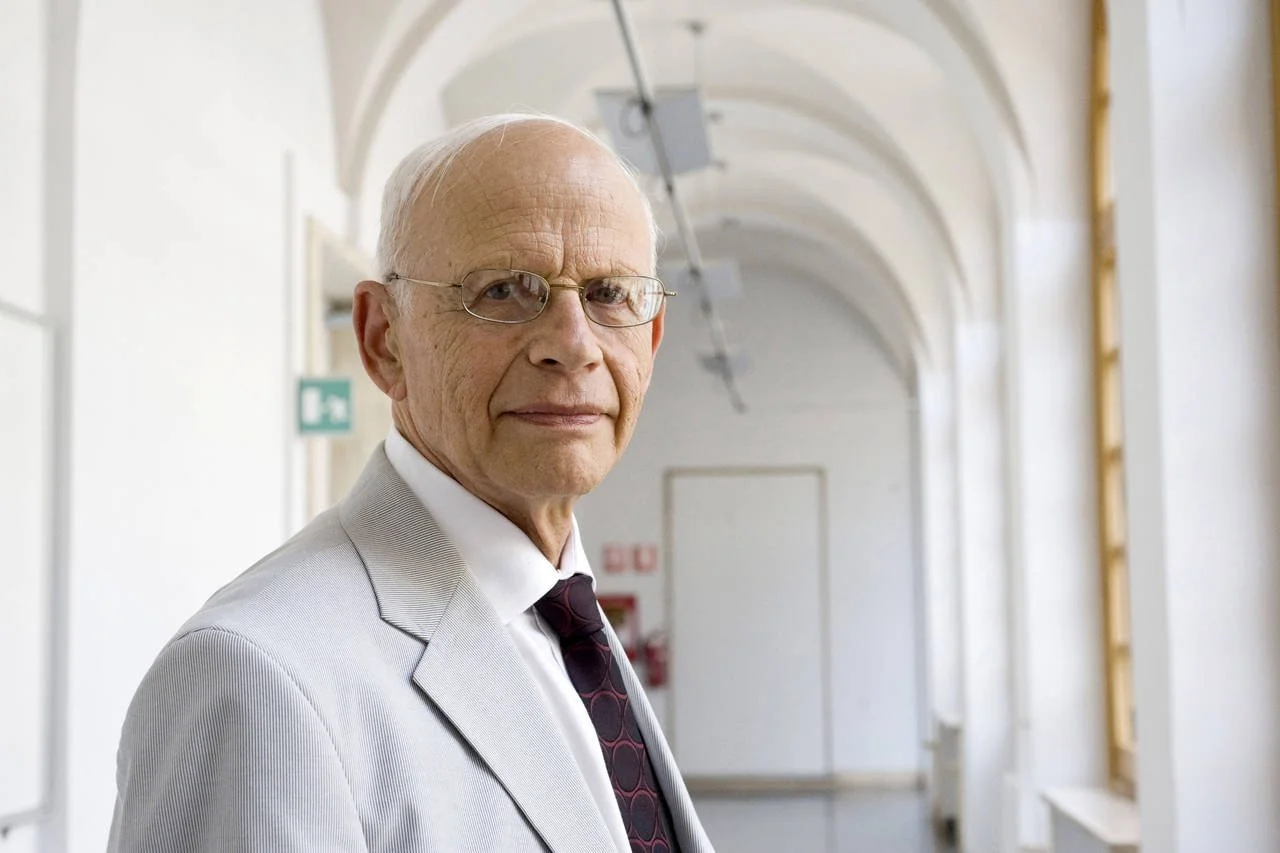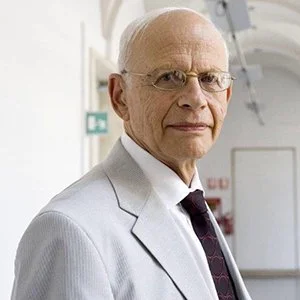Ron and Ed welcome back Professor Baruch Lev from NYU Stern Business School. He was last on back in July 2016 and we discussed his book, The End of Accounting and the Path Forward for Investors and Managers. We talk more about that book and his more recent article in Accounting Today, The sad state of accounting standards.
Ron’s Questions: Segment One
Welcome to The Soul of Enterprise: Business in the Knowledge Economy, sponsored by Sage, transforming the way people think and work so their organizations can thrive. I'm Ron Baker, along with my good friend and VeraSage Institute colleague, Ed Kless. On today's show, folks, we have our second interview with Professor Baruch Lev. Ed, how's it going?
Ed
Ron, it's going great. The birthdays continue to run, we were together for my birthday in Dallas here on Tuesday, and my wife's birthday is today. So we just got back from lunch and we're going to dinner, and it’s a birthday present getting to talk to Professor Lev. So I'm pretty excited about that as well.
Ron
Me too. Let me read his bio, even though he needs no introduction to our listeners. Baruch Lev is the Philip Bardes Professor of Accounting and Finance at New York University Stern School of Business. We just learned before we went live that he recently retired. Professor Lev taught courses in accounting, financial analysis, and investor relations. He's the author of five books, including The End of Accounting, which was published in 2016. We had him on right after that book came out in July 2016 [Episode #101]. Professor Lev, welcome back to The Soul of Enterprise.
Baruch
Thank you, happy to be here.
Ron
In The End of Accounting, when I read that, you dropped a bombshell statistic that still rattles my cage: Today's financial reports provide a trifling five to six percent of the information relevant to, and used by, investors. What's been the professions’ reaction to the book, The End of Accounting?
Like you say, download doesn't mean they read it. And I would add, even if they did read it, it doesn't mean they understood it. Did you have a chance to talk to the accounting regulators, did any approach you, such as the SEC, or maybe the European Union, or other regulators of accounting?
Yes, maybe when Ed comes on he'll ask you about that. Unfortunately, we're at our first break.
Ron asks Baruch during the break
Excellent, Baruch. Let me ask you this. Would society be better off without auditing?
Baruch
I'm not sure it will be much worse off. But I'm definitely for an experiment. So if I wrote the SEC, for example, I would free let's say, 5% of companies from auditing on a random basis, and I would like to see over two or three years if they really lose, significantly, investors. [Would] prices be significantly affected by this? I would introduce some natural experiment. Auditing is very expensive. And the question is, perhaps we can do without it, perhaps you can do with auditing once in three years, rather than every quarter? If you look at reputable firms, like Microsoft, Cisco, I doubt whether lots of investors will dump the stock.
Ron
Thank you, wow, that’s radical coming from an accounting professor.
Ed’s Questions: Segment Two
We are talking today with retired professor Baruch Lev from New York University's Stern School of Business. You were talking with Ron about the impact on investors, and I do want to hear what you have to say about that. But one of the things that is a constant drone from some people that I talk to is how is it that Tesla could be valued at over a trillion dollars, they don't make any money? But clearly the investors get it. Share with me what the impact of the book has been on investors?
It sounds like your paper was far more downloaded than the actual [financial] reports so that's a good leading indicator for you. Ron is an accountant, I'm not, so forgive me if this is a layman's question. Does some of this stuff that you're talking about, treating intangibles as expenses, when they should be assets, is that one of the reasons why companies like Tesla are perceived to be overvalued compared to what traditionally it would have been?
I think that's correct. They're perceived to be overvalued, but clearly I think that's a mistake. One of the things that the company that sponsors this podcast, Sage, we have some accounting programs, and one of the things that we have been working on for the last number of years is artificial intelligence that would allow for what we're calling a continuous audit. Through AI being able to find challenging transactions and things like that. Do you think that that's one of the other things that could happen that would make the audit, the annual audit, of less import?
Great stuff, we're up against our second break.
Ron’s Questions: Segment Three
Welcome back, everybody. We're here for the second time with professor Baruch Lev, accounting professor at New York University. Baruch, I want to ask you about an article you wrote that was published in Accounting Today, July 21 of this year, titled, “The sad state of accounting standards.” You conducted a study, and it's about earnings expectations. I thought it was a another bombshell finding of yours. Can you explain what you found?
Yes, you pointed out in that same article that 2.5 trillion dollars was invested, I think it was 2019, in intangibles, twice as much as physical assets for that year. I have to ask you [based on what you say about the irrelevance of financial report] that tells me that if I want inside information from a company, don't talk to the CFO, go to the HR director, see how many job posts they're listing, or something other than talking numbers. Because that's an astonishing finding, I think. And it brings up a question, I'll ask you again—I asked you during the commercial break—but I just want our listeners to hear your answer to this. If what you say is true, and I have no doubt that it is, would society be better off without auditors?
Do you think that there are other products that could take the place of an audit, such as financial statement insurance offered by insurance companies, or having the stock exchanges decide and pay for the audits of companies that they think need them for some reason?
I'm curious, Baruch, with this knowledge that you have shared, and the continuing irrelevance of auditing of these financial reports, what advice would you give to an aspiring college student that wanted to become a CPA?
Wow. Real quick, we've only got about a minute, maybe two. Why are you skeptical with respect to ESG standards? You had made a comment in the article in Accounting Today about being skeptical about it.
Right, that’s a brilliant point. Thank you so much, maybe Ed will follow up with you on that.
Ed’s Questions: Segment Four
From the article in Accounting Today, Baruch Lev writes, “Consider, for example, the current rush of investors to ESG-intensive companies. Whatever you think of the environmental, social and governmental reporting (and I have my doubts about it), a reliable information system which will report on corporate investment in ESG, and particularly on tradeoffs.” And that was just the point that you were making with Ron. I love when authors of articles have parentheticals near the end of the article, because it's clear that you have a whole other article. So keep going on ESG, and the other challenges with it.
Just what you read sounded to me like a word salad. How you could even understand what that meant, and then, by the way, be accurate about it, and complete. Oh my goodness. Well, Baruch, it's been a pleasure having you on. I don't want to ask you another question because I don't want to have you run out of time. But are you working on some other things? Is there going to be some more from you?
I'm sorry, we're not going to have time for the example, but we look forward to the article or book that you're working on for it. It's going to be fun for us to dive into that when it comes out. Professor Baruch Lev thanks so much for being a guest on The Soul of Enterprise. Ron, what do we got coming up next week?
Ron
I don't know, Ed, you tell me.
Ed
You don't know, Ron, you're supposed to know these things. We have Matthew Feeney from the Cato Institute to talk about drones and drone policy. So we're on to another subject, further down the I-95 Corridor. We were at in Boston last week, so we're working our way down to Washington. Alright, well Ron, I'll see you in 167 hours.
Bonus Content is Available As Well
Did you know that each week after our live show, Ron and Ed take to the microphone for a bonus show? Typically, this bonus show is an extension of the live show topic (sometimes even with the same guest) and a few other pieces of news, current events, or things that have caught our attention.
This past week was bonus episode 365 - Woke Cities” — Here are a few links discussed by Ron and Ed:
Coinbase Is Testing a Feeless Subscription Model - Crypto Briefing
Musk said he’d solve world hunger if UN can explain how money would be spent
Home - Phantom Auto - Enabling Autonomy Through Teleoperation
Canceling Thomas Jefferson by New York City Public Design Commission
To Fix the Shipping Crisis, Start by Repealing the Jones Act – AIER
Virginia shows why credible candidate needs to challenge Trump
George W. Bush’s presidential center in Dallas has a podcast: The Strategerist
Click the “FANATIC” image to learn more about pricing and member benefits.



